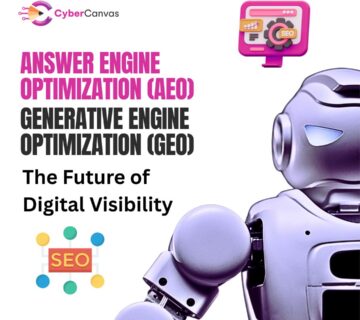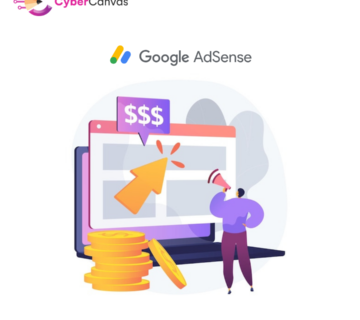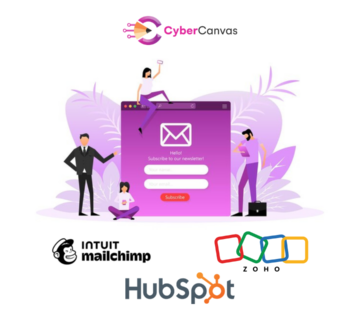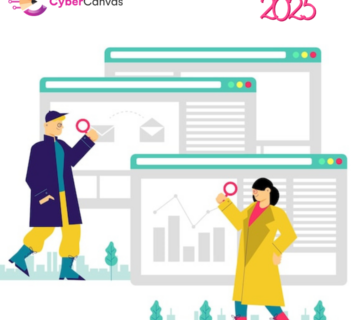The Pros and Cons of Using AI for Digital Marketing Content in 2025

In the rapidly evolving world of digital marketing, artificial intelligence (AI) has emerged as a game-changing force. By 2025, its influence is expected to reach unprecedented levels, transforming how businesses create, manage, and distribute content. While AI offers immense potential, its adoption also brings certain challenges. This article explores the pros and cons of using AI for digital marketing content in 2025, helping businesses make informed decisions.
The Advantages of Using AI in Digital Marketing
AI’s benefits extend across content creation, analytics, and personalization. Here’s a breakdown of the top advantages:
1. Enhanced Efficiency and Speed
AI tools like ChatGPT can generate high-quality content in seconds, making them indispensable for marketers managing tight deadlines. Whether it’s social media posts, blogs, or email campaigns, AI reduces the time needed to brainstorm and create content.
2. Cost-Effective Content Production
Hiring skilled writers, designers, and marketers can be costly. AI-powered platforms, though requiring an initial investment, drastically reduce long-term operational expenses. Businesses save on salaries and benefit from consistent output without the need for additional hires.
3. Advanced Personalization
AI excels at analyzing user behavior and preferences. Tools like AI-driven recommendation engines allow businesses to deliver personalized content, enhancing customer engagement. For example, AI can tailor product suggestions based on browsing history, ensuring each user feels uniquely catered to.
4. Improved Decision-Making Through Analytics
AI doesn’t just create content—it provides actionable insights. Predictive analytics helps marketers identify trends, optimize campaigns, and allocate resources more effectively. AI tools also assist in tracking customer journeys, improving ROI calculations.
5. Scalability of Campaigns
Scaling traditional content production can be challenging. With AI, businesses can easily expand their operations without compromising quality. AI enables the simultaneous management of multiple campaigns, reaching global audiences with localized content.
6. SEO Optimization Made Easy
AI tools like SurferSEO and MarketMuse help marketers create SEO-friendly content by suggesting keywords, headlines, and formatting. These tools optimize on-page SEO, improving search engine rankings with minimal manual effort.
7. 24/7 Availability
AI-powered chatbots and automated tools are operational round the clock. This ensures customer queries are addressed instantly, boosting satisfaction and reducing the load on human teams.
The Challenges and Limitations of AI in Digital Marketing
Despite its advantages, AI isn’t a flawless solution. Here are some critical concerns associated with using AI for digital marketing content:
1. Lack of Human Creativity and Emotion
While AI excels at generating structured content, it struggles with creative storytelling and emotional nuance. Marketing thrives on human connections, which AI cannot replicate entirely. For instance, AI-written copy may lack the relatability and authenticity that resonate with audiences.
2. Dependence on Data Quality
AI is only as good as the data it’s trained on. Poor-quality or biased data can lead to subpar content or misguided strategies. Businesses need to invest in data cleaning and ensure ethical data usage to avoid missteps.
3. Initial Investment Costs
Adopting AI-powered tools can be expensive upfront. Small businesses with limited budgets may find it challenging to compete with larger organizations that can afford advanced AI systems.
4. Over-Reliance on Automation
Excessive reliance on AI risks losing the human touch in content creation. Automation can lead to generic or repetitive messaging, which may alienate customers over time. Striking the right balance between AI and human input is crucial.
5. Ethical Concerns and Copyright Issues
AI’s ability to generate content raises ethical questions about originality and plagiarism. Some AI tools may inadvertently produce content similar to existing materials, leading to copyright disputes. Businesses must implement strict checks to ensure compliance.
6. Limited Understanding of Brand Voice
Each brand has a unique tone and style that may be difficult for AI to replicate. Without meticulous fine-tuning, AI-generated content can feel impersonal, diluting the brand’s identity.
7. Privacy and Security Risks
AI systems often require access to sensitive customer data. This raises concerns about data security and privacy. Businesses need to adhere to strict regulations like GDPR and CCPA to maintain trust and avoid penalties.
Real-World Applications of AI in Digital Marketing
By 2025, AI is playing a pivotal role in various aspects of digital marketing:
1. Content Generation
AI tools like Jasper and Copy.ai assist marketers in creating blog posts, ad copy, and product descriptions. These tools can produce multiple drafts, speeding up the creative process.
2. Predictive Customer Insights
Predictive analytics platforms use AI to forecast customer behavior, enabling businesses to anticipate trends and adapt strategies accordingly.
3. Programmatic Advertising
AI optimizes ad placements through programmatic advertising, targeting the right audience at the right time with precision. This reduces wasted ad spend and improves conversion rates.
4. Email Campaign Automation
Platforms like Mailchimp use AI to personalize email content, predict customer responses, and schedule emails for optimal engagement.
5. Social Media Management
AI-powered tools like Hootsuite and Sprout Social assist with content scheduling, sentiment analysis, and performance tracking. They help marketers stay ahead in the fast-paced world of social media.
Future Trends in AI and Digital Marketing
As AI evolves, several trends are shaping the future of digital marketing:
1. AI-Driven Video Content
With the growing popularity of video marketing, AI tools like Pictory and Synthesia are enabling the creation of engaging, customized videos with minimal effort.
2. Voice Search Optimization
Voice assistants like Siri and Alexa are influencing search behaviors. AI helps businesses optimize their content for voice queries, ensuring they remain visible in this expanding market.
3. Hyper-Personalization
AI will enhance personalization by analyzing even deeper levels of customer data, such as facial expressions or voice tones in interactions.
4. AI and Blockchain Integration
Combining AI with blockchain technology ensures greater data security and transparency, addressing privacy concerns while improving marketing effectiveness.
5. Augmented Reality (AR) and AI
AI-powered AR experiences allow businesses to offer interactive content, bridging the gap between online and offline marketing. For instance, virtual try-on features for retail brands are becoming increasingly sophisticated.
Strategies for Effective Use of AI in Digital Marketing
To maximize AI’s potential, businesses should adopt the following strategies:
1. Maintain a Human-AI Balance
AI should complement, not replace, human creativity. Use AI for repetitive tasks while allowing humans to focus on strategic and emotional storytelling.
2. Invest in Employee Training
Equip your team with the skills to leverage AI tools effectively. Regular training sessions ensure seamless integration and improved outcomes.
3. Prioritize Ethical AI Practices
Ensure transparency and fairness in your AI usage. Adhere to ethical guidelines and keep customer interests at the forefront.
4. Test and Optimize
Constantly monitor AI-generated content for quality and relevance. Use A/B testing to refine strategies and maximize performance.
5. Leverage Multiple AI Tools
Different AI platforms excel in different areas. Use a mix of tools to cover content creation, analytics, SEO, and customer engagement.
FAQs: Using AI in Digital Marketing
1. Can AI replace human content creators?
No, AI cannot fully replace human creativity. While it excels at efficiency and data-driven insights, it lacks emotional depth and originality.
2. Is AI suitable for small businesses?
Yes, many affordable AI tools are tailored for small businesses. These tools help streamline marketing efforts and reduce costs, making AI accessible to all.
3. How does AI improve customer engagement?
AI enhances engagement through personalized recommendations, real-time chatbots, and tailored marketing messages that resonate with individual users.
4. Are there any risks associated with AI in marketing?
Risks include data security concerns, loss of human touch, and ethical issues like plagiarism. Careful implementation can mitigate these risks.
5. What are the best AI tools for content creation?
Popular tools include ChatGPT, Jasper, Copy.ai, and Grammarly for content generation and optimization.
6. How can businesses ensure AI-generated content aligns with their brand voice?
By fine-tuning AI algorithms and providing detailed guidelines, businesses can ensure AI-produced content reflects their unique tone and values.
Conclusion
By 2025, AI has solidified its role in digital marketing, offering unparalleled efficiency, personalization, and insights. However, it also presents challenges, such as ethical dilemmas and the risk of losing human creativity. To succeed, businesses must strike a balance between AI’s capabilities and human ingenuity, leveraging AI as a tool rather than a replacement.
With the right approach, AI can drive innovation and growth, propelling businesses to new heights in the competitive digital landscape
How Can Cyber Canvas Help?
Cyber Canvas is an innovative platform designed to revolutionize how businesses approach digital marketing and creative content. By leveraging cutting-edge technology and industry expertise, Cyber Canvas offers a range of solutions tailored to meet the unique needs of modern businesses. Here’s how Cyber Canvas can help:
1. AI-Driven Content Creation
Cyber Canvas employs advanced AI tools to generate high-quality, engaging, and SEO-optimized content for blogs, social media, and websites. This ensures faster production without compromising creativity or relevance.
2. Personalized Marketing Strategies
Understanding that every business is unique, Cyber Canvas develops tailored marketing strategies. These strategies are designed to align with a brand’s goals, audience preferences, and market trends, maximizing engagement and conversions.
3. Data Analytics and Insights
With Cyber Canvas, businesses gain access to robust analytics tools that provide actionable insights. These tools track customer behavior, campaign performance, and market trends, helping brands make informed decisions and improve ROI.
4. Enhanced Brand Identity
Cyber Canvas helps businesses craft compelling brand narratives and visual identities. From logo design to storytelling, the platform ensures consistency and appeal across all touchpoints.
5. Automation for Efficiency
Repetitive tasks like email campaigns, ad scheduling, and social media management are streamlined through automation. This saves time and allows businesses to focus on strategic growth.
6. Advanced Cybersecurity Features
In an age where data breaches are a growing concern, Cyber Canvas integrates state-of-the-art cybersecurity measures to protect sensitive business and customer data.
7. Expertise Across Industries
Cyber Canvas brings together a team of professionals experienced in various industries. This cross-sector knowledge ensures innovative and effective solutions for businesses of all types and sizes.
8. Scalable Solutions for Growth
Whether a startup or an established enterprise, Cyber Canvas provides scalable solutions. As businesses grow, the platform’s tools and services adapt to meet increasing demands.
By combining technology, creativity, and expertise, Cyber Canvas empowers businesses to thrive in the competitive digital landscape. Whether enhancing your online presence, streamlining processes, or driving revenue, Cyber Canvas is the partner you need to achieve your goals.







No comment